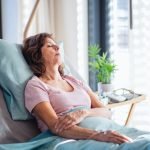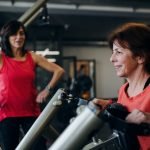Sleep apnea treatment also helps reduce night-time heartburn and coughing
Sleep apnea is a sleep disorder where people have trouble breathing while they sleep. Often, they snore loudly and wake up frequently during the...
Why going low-carb or low-fat may not extend your life
Diet trends like low-carb and low-fat diets are all the rage for weight loss, but what about their long-term effects on how long we...
New study links sleep duration to your type 2 diabetes risk
A new study from the Netherlands, published in the journal Sleep Health, has found a U-shaped correlation between sleep duration and the risk of...
Scientists find link between poor sleep, stress, and heart problems in older women
We all know that getting older comes with its own set of health risks, like high blood pressure and diabetes.
These are commonly linked to...
Mountain biking: health benefits outweigh the risks, says new study
A new study by Curtin University's School of Nursing aims to debunk the widely held notion that mountain biking is an extreme, injury-prone sport...
Weight loss surgery affects how medication works, experts warn
One-third of Australians are struggling with obesity, leading many to opt for weight loss surgery. Every year, around 100,000 such surgeries are performed in...
Sleeping trouble might cause high blood pressure, study finds
Imagine this: You're asleep, but your breathing stops for a bit, then starts again. This doesn’t just happen once but multiple times throughout the...
How bad lifestyle choices affect blood vessels differently in men and women
A groundbreaking study from the University of Missouri School of Medicine has discovered that making poor lifestyle choices for just a short period can...
Cardio fitness and rigorous exercise can fight against cognitive decline
As we get older, many people worry about memory loss and other forms of mental decline. But what if you could slow down this...
Can body contouring influence long-term weight loss post-bariatric surgery?
A recent study published in Plastic and Reconstructive Surgery challenges the previously held belief that body contouring surgeries aid in long-term weight loss or...










